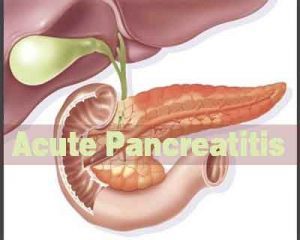- Home
- Editorial
- News
- Practice Guidelines
- Anesthesiology Guidelines
- Cancer Guidelines
- Cardiac Sciences Guidelines
- Critical Care Guidelines
- Dentistry Guidelines
- Dermatology Guidelines
- Diabetes and Endo Guidelines
- Diagnostics Guidelines
- ENT Guidelines
- Featured Practice Guidelines
- Gastroenterology Guidelines
- Geriatrics Guidelines
- Medicine Guidelines
- Nephrology Guidelines
- Neurosciences Guidelines
- Obs and Gynae Guidelines
- Ophthalmology Guidelines
- Orthopaedics Guidelines
- Paediatrics Guidelines
- Psychiatry Guidelines
- Pulmonology Guidelines
- Radiology Guidelines
- Surgery Guidelines
- Urology Guidelines
AGI's latest Guidelines for Management of Acute Pancreatitis

AP (acute pancreatitis) is an inflammatory condition of the pancreas that can cause local injury, systemic inflammatory response syndrome, and organ failure. Worldwide, AP (acute pancreatitis) is a common gastrointestinal condition that is associated with substantial suffering, morbidity, and cost to the healthcare system.
American Gastroenterological Association has released its latest Clinical Guidelines for the Initial Management of Acute Pancreatitis.The early phase of AP has been defined as first 2 weeks after disease onset, and the late phase can last weeks to months thereafter.The Guidelines have been published in Gastroenterology.
Key Recommendations :
- AGA suggests against the use of hydroxymethyl starch (HES) fluids in patients with AP.
- In patients with predicted severe AP and necrotizing AP, the AGA suggests against the use of prophylactic antibiotics.
- In patients with acute biliary pancreatitis and no cholangitis, the AGA suggests against the routine use of urgent ERCP.
- In patients with AP, the AGA recommends early (within 24 hr) oral feeding as tolerated, rather than keeping the patient nil per os.
- In patients with AP and inability to feed orally, the AGA recommends enteral rather than parenteral nutrition.
- In patients with predicted severe or necrotizing pancreatitis requiring enteral tube feeding, the AGA suggests either nasogastric or nasojejunal route.
- In patients with acute biliary pancreatitis, the AGA recommends cholecystectomy during the initial admission rather than after discharge.
- In patients with acute alcoholic pancreatitis, the AGA recommends brief alcohol intervention during admission.Strong recommendation, moderate quality evidence.
There are several knowledge gaps in the initial management of AP that have been identified for which RCTs are warranted, as is highlighted in the technical review that accompanies this guideline.
- More evidence is needed to deterimine the optimal fluid therapy practice in AP, and to better quantify the benefits and harms of goal-directed therapy vs other approaches.
- Current evidence does not support a clear benefit of Ringer’s lactate solution compared to normal saline for important outcomes, such as organ failure, necrosis, or mortality.
- High-quality multicenter RCTs are required to determine whether prophylactic antibiotics have a role in specific groups of patients with predicted severe AP and necrotizing pancreatitis.
- The appropriate timing of ERCP in patients with predicted severe biliary pancreatitis with persistent biliary obstruction also needs to be clarified in future studies.
The experts feel that future research should focus on the impact of alcohol and tobacco cessation interventions on endpoints, such as recurrent AP, progression to chronic pancreatitis and pancreatic cancer, quality of life, health care utilization, and mortality.
For further reference log on to:
DOI: https://doi.org/10.1053/j.gastro.2018.01.032

Disclaimer: This site is primarily intended for healthcare professionals. Any content/information on this website does not replace the advice of medical and/or health professionals and should not be construed as medical/diagnostic advice/endorsement or prescription. Use of this site is subject to our terms of use, privacy policy, advertisement policy. © 2020 Minerva Medical Treatment Pvt Ltd